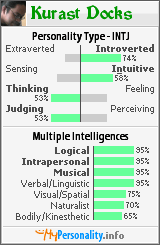 Critics have found Maya Angelou's (Marguerite Johnson) narrative in the book I Know Why The Caged Bird Sings running along two traditional themes of autobiography: the triumph over obstacles and the search for identity. The story tells about the young Maya growing up with the stigma of being abandoned by her mother, rejected by the society and subsequently her own feelings of inadequacy. It is shown that she rises above adversity by transcending the tripartite crossfire of masculine prejudice, white illogical hate and the black lack of power. This, I believe, was the main selling point of the novel.
Critics have found Maya Angelou's (Marguerite Johnson) narrative in the book I Know Why The Caged Bird Sings running along two traditional themes of autobiography: the triumph over obstacles and the search for identity. The story tells about the young Maya growing up with the stigma of being abandoned by her mother, rejected by the society and subsequently her own feelings of inadequacy. It is shown that she rises above adversity by transcending the tripartite crossfire of masculine prejudice, white illogical hate and the black lack of power. This, I believe, was the main selling point of the novel.People in all walks of life can identify themselves with the story. However removed we are from the racial prejudices in the West and the stigma these injustices bring, we Filipinos can still see parallels in our society. Early on in our lives, society has challenged us to be inventive in our ways (with food and even power shortages being part of Pinoy life) and develop coping mechanisms like our self-deprecating humor and an amazing supply of empathy bringing forth our sense of hospitality and friendliness even in times of want.
Growing up in hard-pressed areas, the majority of Pinoys also learn that it takes not just diligence to take on life but a surprising sprinkling of luck from the Stars. We are constantly surprised by suddenly successful people (read: nouveau riche) and immediately assume sinuwerte, baka nanalo sa Lotto. We have been enslaved by our horoscopes and pamahiins that we know Chinese never give out money on Mondays. Do-re-mi babies are born everywhere trusting that the gods that be have greater plans in the end, holding on to that elusive cloud of hope. We fervently follow our weekly dose of Showbiz balita, drowning ourselves in soap operas and identifying with the incurably helpless and vulnerable bida, expecting a Knight in Shining Armor (or Darna) to rescue her or a last-minute appearance of a deus ex machina to right all the wrongs in the world.
Although Maya's story did not involve any clear lucky happenstance that turned her world around, we Filipinos would know where to find it. Many of us have dedicated our lives to discovering that one lucky break. Many still would describe a life as a long journey, occasionally helped by an unexpected pedicab which just happened to have a fare to where we're going.
Looking back at our history as a people, it's no wonder we are who we are now. It's even being told that Filipinos behave this way because we have been enshrined in convents for 300 years and brought out to freedom in brothels for 30 years. Our identities are as colorful as a mix of red Spanish Latinos, white Americans, yellow Japanese and inherent brown Asians.
 That's why we, as a people, transcend even the face of the tripartite crossfire of poverty, political unrest and plain social indifference. We still triumph over obstacles in the continuing search for our identity. We may not be Maya Angelou but We Know Why The Caged Bird Sings.
That's why we, as a people, transcend even the face of the tripartite crossfire of poverty, political unrest and plain social indifference. We still triumph over obstacles in the continuing search for our identity. We may not be Maya Angelou but We Know Why The Caged Bird Sings.The neighbors have videoke.





No comments:
Post a Comment